Is your organization struggling to keep up with evolving technology and market demands? Are valuable employees feeling underutilized while critical skills remain unfilled? Talent mapping could be the meaningful change you need.
Simply put, it is the continuous process within an organization that finds the right talent, puts talent in the right roles, and retains it through career pathing.
By visualizing your workforce's current skills and identifying future requirements, talent mapping empowers you to bridge skill gaps and build a future-proof team. However, it is lengthy, time-consuming, and requires a fair amount of data reading and manipulation.
By using talent mapping tools, you can survey the employee pool for existing skills competencies or gaps, and specify skills needed in the future. All this, while saving time and resources compared to manual methods.
Talent mapping software streamlines the process, offering data-driven insights and automating tedious tasks. Do not wait until skill shortages hinder your growth. Explore how predictive analytics and AI can unlock your organization’s true potential.
Here are the top 8 talent mapping tools used to fill skill gaps in 2024:
|
Table of content Skill Gaps analysis tools #1 iMocha |
Skill Gaps analysis tools
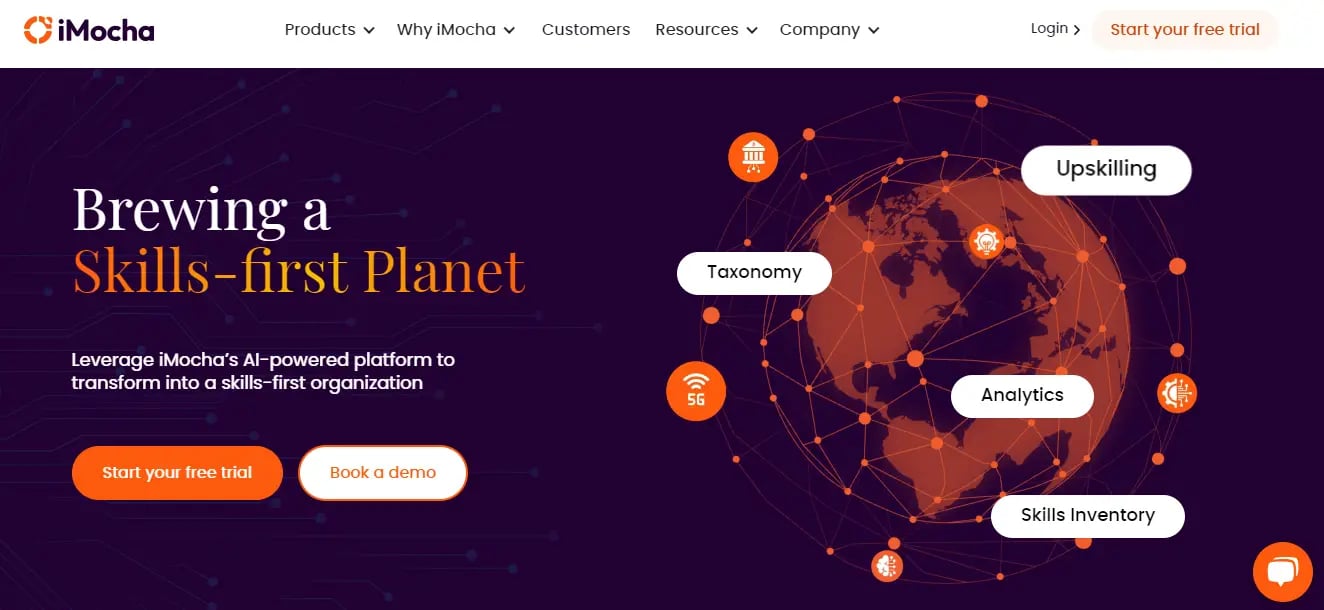 iMocha is one of the top skills assessment talent mapping tools that help enterprises analyze skill gaps and evaluate the ROI of L&D programs. This platform allows you to create targeted learning paths for your employees by conducting a department- and organization-wide training needs analysis (TNA).
iMocha is one of the top skills assessment talent mapping tools that help enterprises analyze skill gaps and evaluate the ROI of L&D programs. This platform allows you to create targeted learning paths for your employees by conducting a department- and organization-wide training needs analysis (TNA).
iMocha offers the world's most comprehensive skill assessment library, which features over 3000 skills, 100,000+ questions, cutting-edge coding simulators, and AI-based analytics.
Its upskilling assessment portal helps managers and L&D professionals map individual growth and assessment journey. The app is also integrated with Microsoft Teams and sends nudges to learners routinely to take self-assessments.
Introduced in 2023, iMocha's Skill Intelligence Cloud revolutionizes talent development and management for L&D leaders. This AI-driven solution surpasses virtual assessments, offering comprehensive skills gap analysis for targeted upskilling, reskilling, and internal mobility programs. Backed by data-driven insights, it enhances employee productivity and cultivates agile teams poised to adapt to evolving workplace needs.
Founded in: 2015
Founded by: Amit Mishra and Sujit Karpe
Website: https://www.imocha.io
Free Trial: Yes
Pros:
- iMocha has ready-to-use code tests with over 1000 coding questions and 500 IT skills that help cut the assessment time in half.
- It also offers project-based assessments that stimulate on-the-job work experience, which helps managers assess whether or not learners are project ready.
- iMocha also helps you create a skill taxonomy of your organization, to help you identify critical skills for business continuity and future growth.
Cons:
- iMocha does not conduct psychometric tests.
Clients: Deloitte, PayPal, Fujitsu, Capgemini, Cognizant, Wipro, CGI, and more
Pricing: Visit iMocha pricing here
G2 Crowd Rating: 4.4/5 (247 reviews)
Talent Mapping Tools
1. The Predictive Index
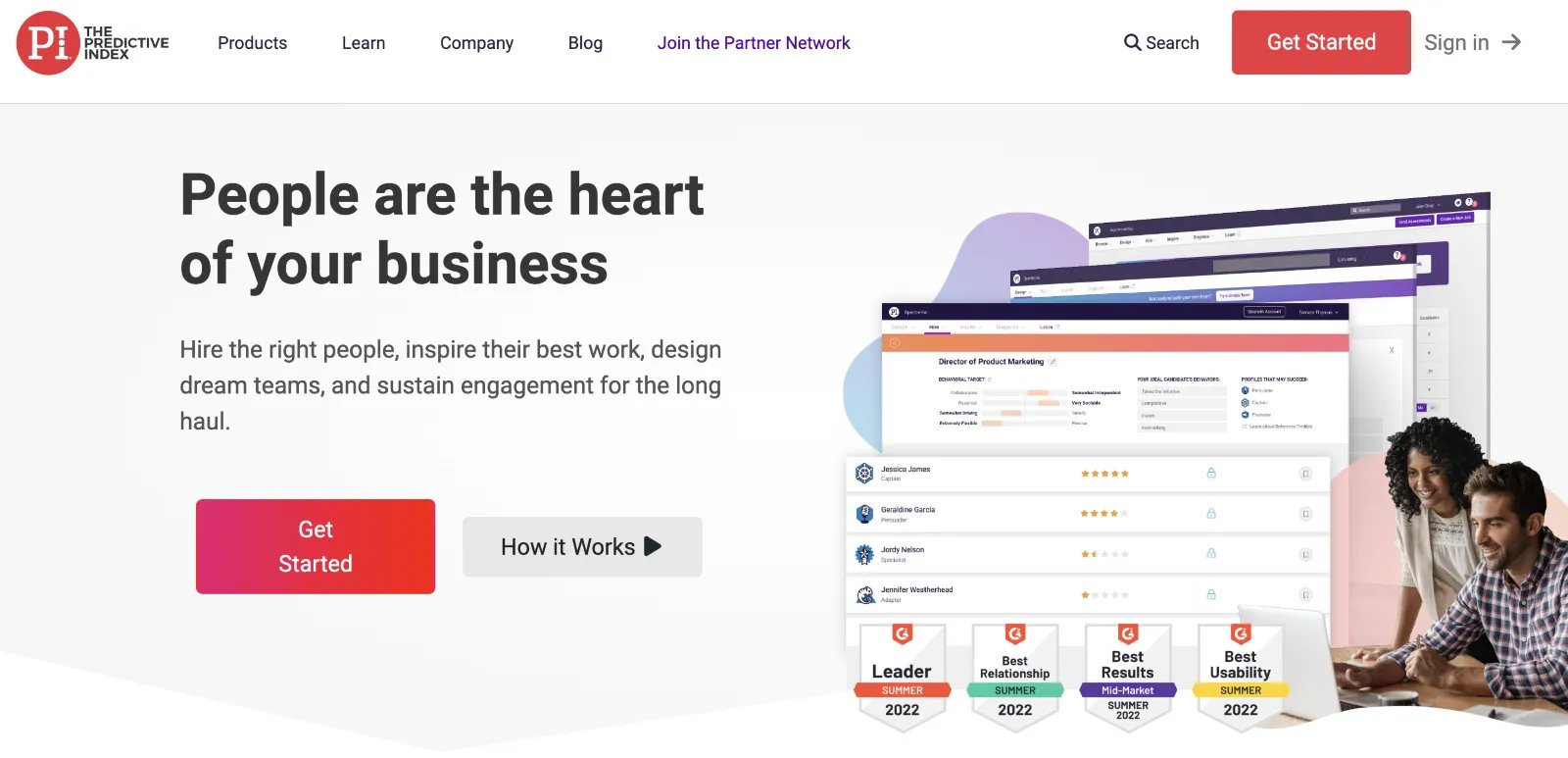 Founded in: 1940
Founded in: 1940
Founded by: Arnold S. Daniels
Free Trial: No
Pros:
- Through the combination of psychometrics and technology, P.I. provides you with tools that help diagnose employee experience and identify specific actions to help improve it
- This talent mapping tool offers assessments in 70+ languages
- The software offers one of the fastest behavioral assessments just 6 minutes, with impactful insights into a learner’s behavior
Cons:
- The Predictive Index is one of the most highly priced workforce development assessment tools, and only enterprises with big budgets can afford it
- The software has a complex and unintuitive U.I., making it much harder to navigate features like a link to the assessments
Clients: DocuSign, Formstack, AutoNation, 47
Pricing: On request
G2 Rating: 4.7/5 (474 reviews)
|
Unable to identify skills gap? Use iMocha's skills gap analysis tool |
2. SmartRecruiters
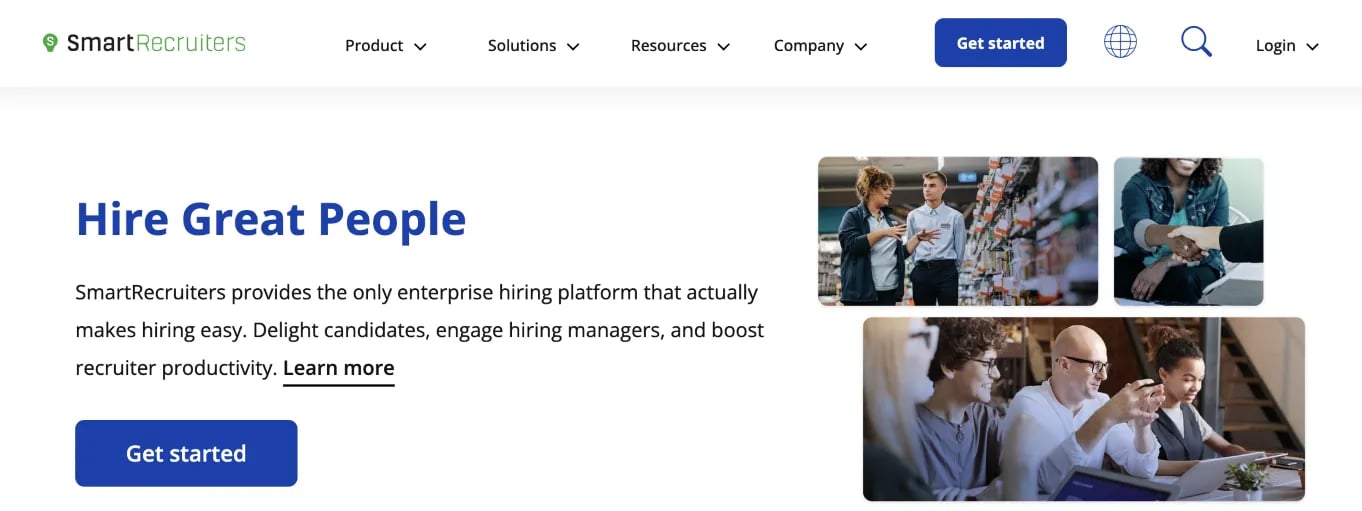 Founded in: 2010
Founded in: 2010
Founded by: Jerome Ternynck
Free Trial: Yes
Pros:
- It allows the recruiter to review candidates, add grades or ratings, pass the review to another reviewer, or return the assessments to H.R. teams
- It helps you capture passive candidates' data, so you have a pool of candidates ready when there is a job requisition
- It helps you schedule interviews and process thousands of candidates at once
Cons:
- There is no feature for self-scheduling interviews on this SaaS recruiting tool
- SmartRecruiters does not automatically contact candidates after a job application
- It doesn't integrate well with other platforms
Clients: VISA, LinkedIn, Skechers, Equinox, Avery Dennison
Pricing: On request
G2 Rating: 4.3/5 (461 reviews)
3. SeekOut
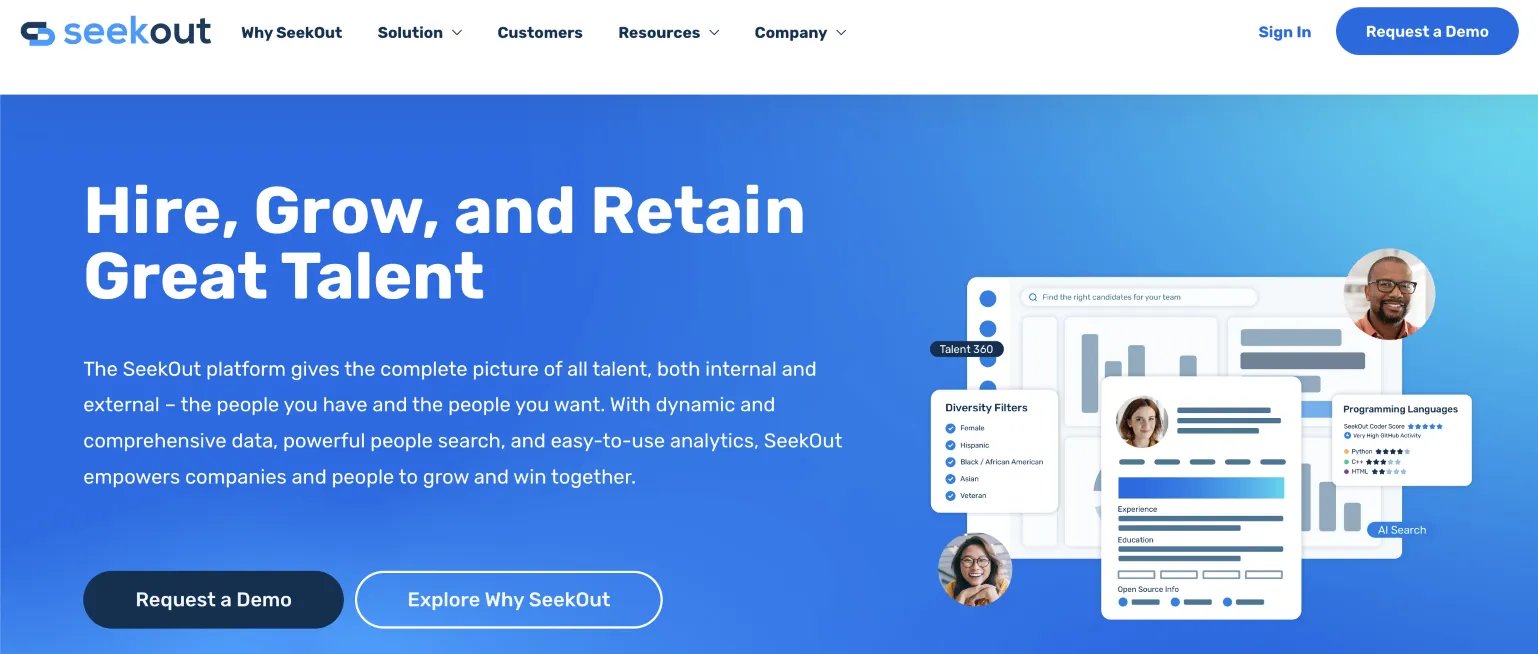 Founded in: 2015
Founded in: 2015
Founded by: Anoop Gupta
Free Trial: Not Available
Pros:
- You can target passive applicants who aren't on LinkedIn or other sites using the platform
- It allows you to discover candidates with basic keyword searches – eliminating the need of expert search techniques
- It can look for tech positions internally within GitHub
- This software provides talent mapping services and allows recruiters to upload job descriptions directly on SeekOut’s AI Matching tool. It helps you find relevant candidates based on the descriptions uploaded
Cons:
- Each messaging campaign requires a new signature
- Their search engine is built poorly. It does not suggest names slightly resembling the one entered, so if you make a spelling mistake, it will not offer any related options
- This talent mapping software does not allow you to directly add the candidate to a campaign from the search page. You need to open another tab in the project and add them
Clients: Salesforce, Trilogy, UiPath, VMware, Experian
Pricing: Not disclosed publicly
G2 Rating: 4.5/5 (570 reviews)
|
Looking for a solution to build a talent development strategy? Use iMocha's skills gap analysis tool |
4. Catenon
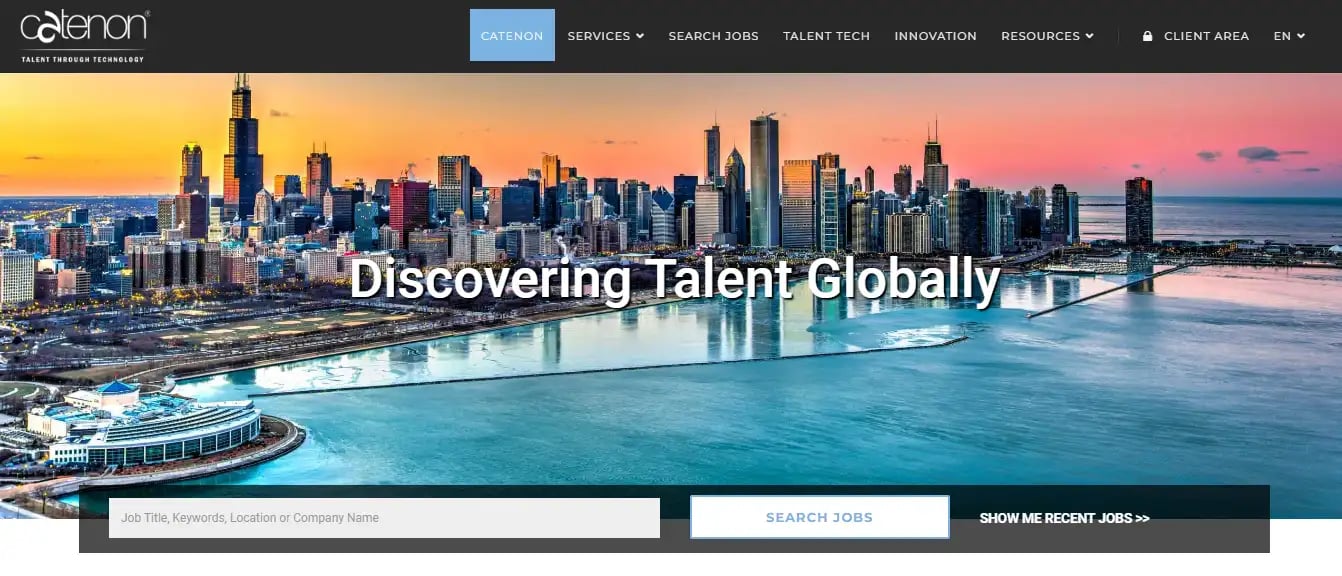 Founded in: 2000
Founded in: 2000
Founded by: Pablo Sanchez
Free Trial: No
Pros:
- This talent mapping software sources professionals globally and does not invest only in local databases.
- It has a traceability architecture that gleans information on skills and professionals in all sectors, competitor profiles, and in salary bands across 100 countries.
- You can access results from any device and the interface has a multi-user functionality enabling talent mappers to screen candidates.
Cons:
- It has limited options for customization
Clients: Details not Available
Pricing: On request
G2 Rating: NA
5. Weekly10
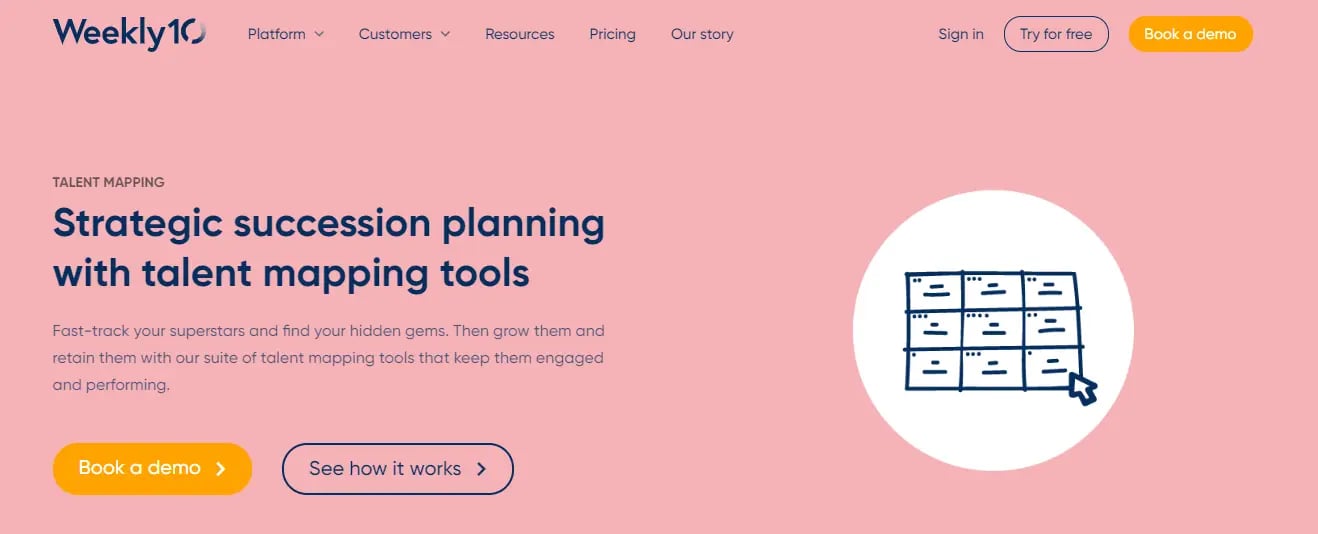 Founded in: 2013
Founded in: 2013
Founded by: Andy Roberts
Free Trial: Available
Pros:
- The talent mapping platform can also process rich employee feedback and performance insights. Weekly 10 can then map talent for succession in leadership roles for critical positions based on these performance metrics. It reads the skills in existing employees and determines if they can seamlessly step into key roles in the event of promotions, retirements, or resignations or HR must hire laterally instead.
- There is 360-degree feedback with performance conversations and goal tracking. Can be used as a standalone tool in an employee's performance evaluation and subsequent talent mapping.
Cons:
- The platform has a complex, unintuitive user interface.
Clients: Canon, Clarks, Magenta Insurance, Engie
Pricing: Free Trial
G2 Rating: 4.6/5 (128 reviews)
|
Unable to identify critical skills for the future? Use iMocha's skills gap analysis tool! |
6. AmazingHiring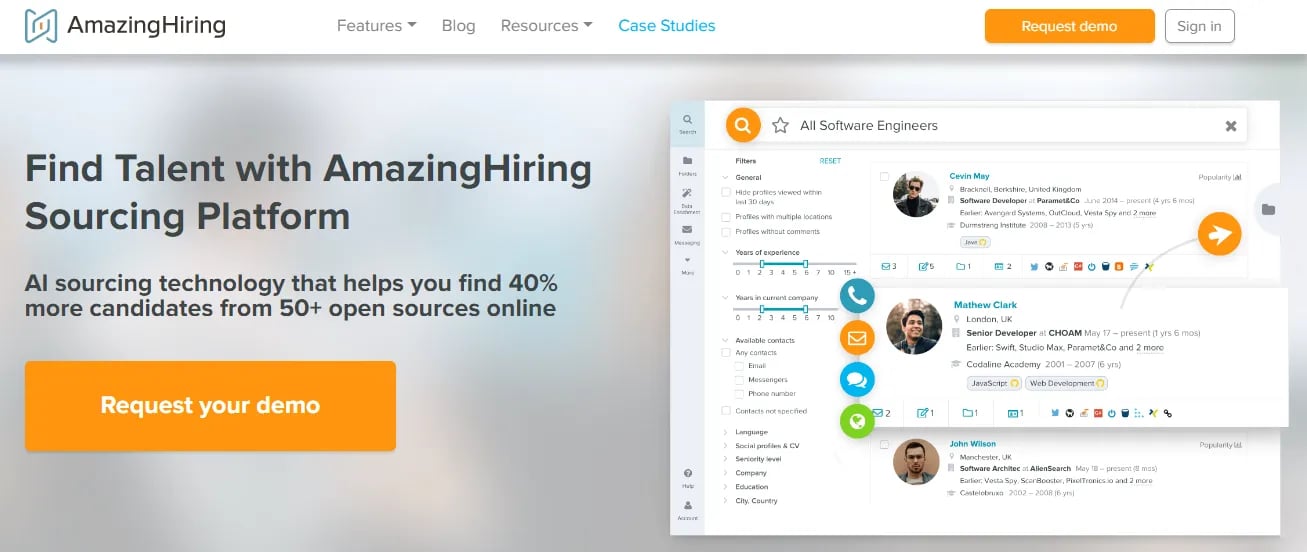
Founded in: 2011
Founded by: Sergey Smitrichenko
Free Trial: No
Pros:
- This talent mapping software provides insights into the current market to help you identify and recruit candidates for rare and niche skills, and even senior positions
- The software is best suitable for hiring software engineers, data scientists, UI/UX designers, Q.A. (Quality Assurance) engineers, and other technical specialists
- It allows you to set and send email drip campaigns directly from the software
Cons:
- It does not allow any direct contact with the candidate from the system
- AmazingHiring does not let you access candidates’ experience details on GitHub and LinkedIn
- The software is relatively expensive
Clients: Venchr, Talentful, Bolt, Abbyy, mollie
Pricing: On request
G2 Rating: 4.5/5 (21 reviews)
7. Loxo
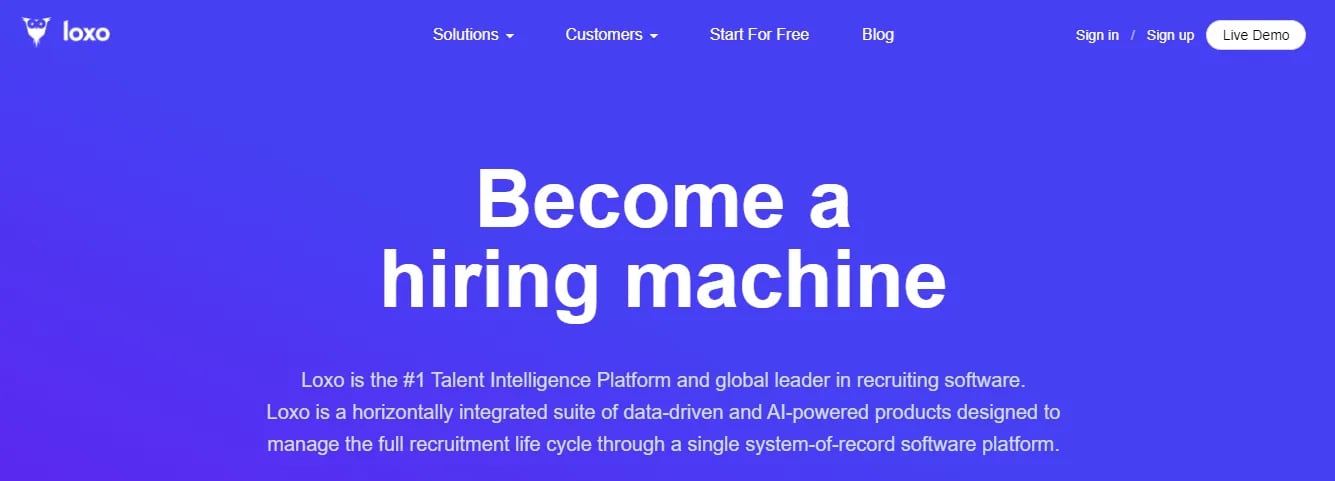 Founded in: 2013
Founded in: 2013
Founded by: Josh Bilenker
Free Trial: Available
Pros:
- Loxo is one of the best talent mapping tools because of its clean and intuitive UI/UX
- Their chat feature is client-friendly and quite responsive
- It provides a powerful applicant sourcing solution by effectively combining data from an ATS/CRM, ZoomInfo, and DiscoverOrg into one
Cons:
- Loxo is not a mobile-friendly application
- The platform slows down during bulk mailing
- Data migration to a new system is quite challenging with Loxo
Clients: ON Partners, EndoVis, nGrowth
Pricing: On request
G2 Rating: 4.7/5 (93 reviews)
8. Entelo
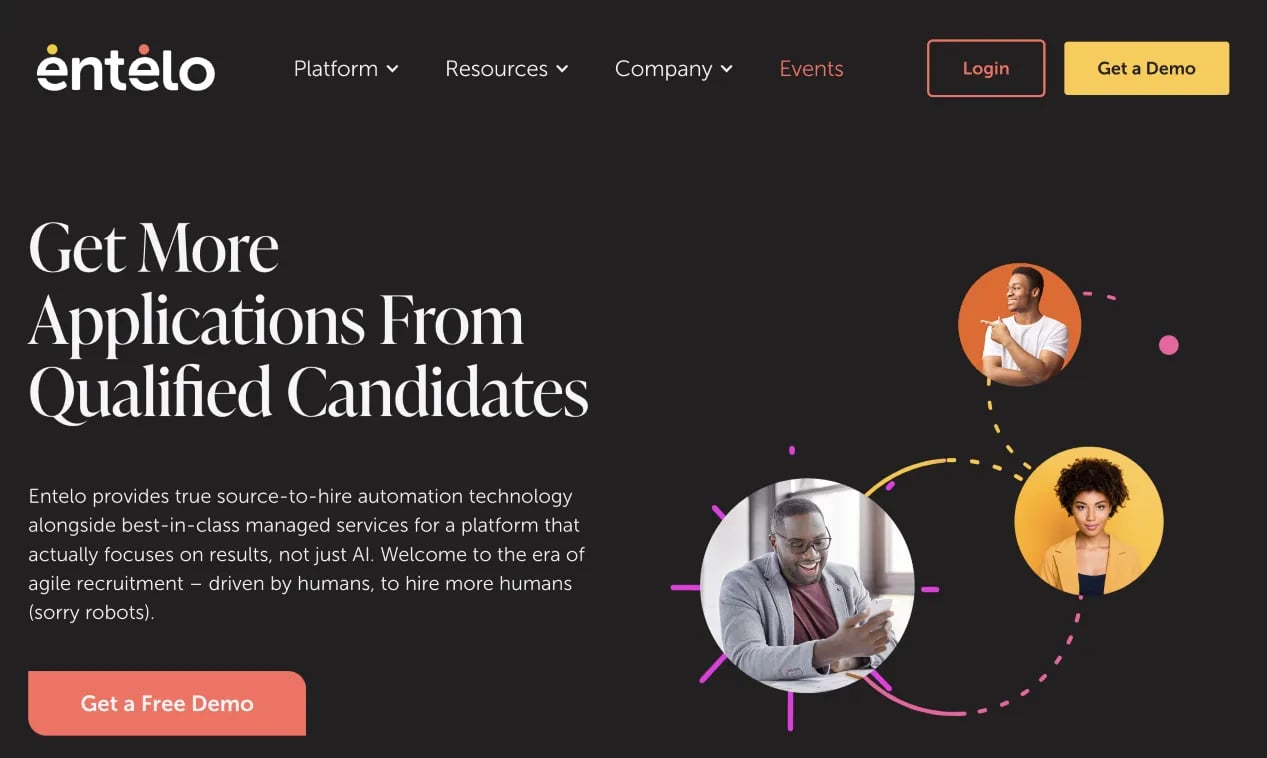 Founded in: 2011
Founded in: 2011
Founded by: Jon Bischke and John McGrath
Free Trial: Available
Pros:
- Their client support is of great help
- It’s really easy to prepare email drip campaigns with Entelo
- Its search features are on-point; it automatically puts filters like skills, position, etc. in place
Cons:
- They do not support Boolean integration
- The software is quite expensive
- Entelo’s search interface lags from time to time
Clients: The New York Times, Meredith, Goldman Sachs, Netflix
Pricing: On request
G2 Rating: 4.2/5 (114 reviews)
FAQs
What is the talent mapping process?
Talent mapping is the process of assessing a company's current skills, competencies, and future requirements. It is also about assessing whether your existing workforce can meet those needs, create learning and development programs to build those skills in-house, and sourcing high-potential candidates for future recruitment. This talent mapping process is done continuously to ensure business-critical skills are identified on time.
How to identify top talent with talent mapping?
Using talent mapping tools, you can identify high potential talent.
- Create a skill taxonomy and understand the critical skills for the future
- Create an industry benchmark to ensure quality
- Conduct department-wise skills assessments
- Identify top performers from assessments
Can we use skills assessment tests for talent mapping?
The ultimate goal of talent mapping is to evaluate the abilities and skills of both current employees and job candidates, therefore, organizations frequently use skills assessment exams to do this. So, yes certainly, skill assessments can be used for talent mapping.


